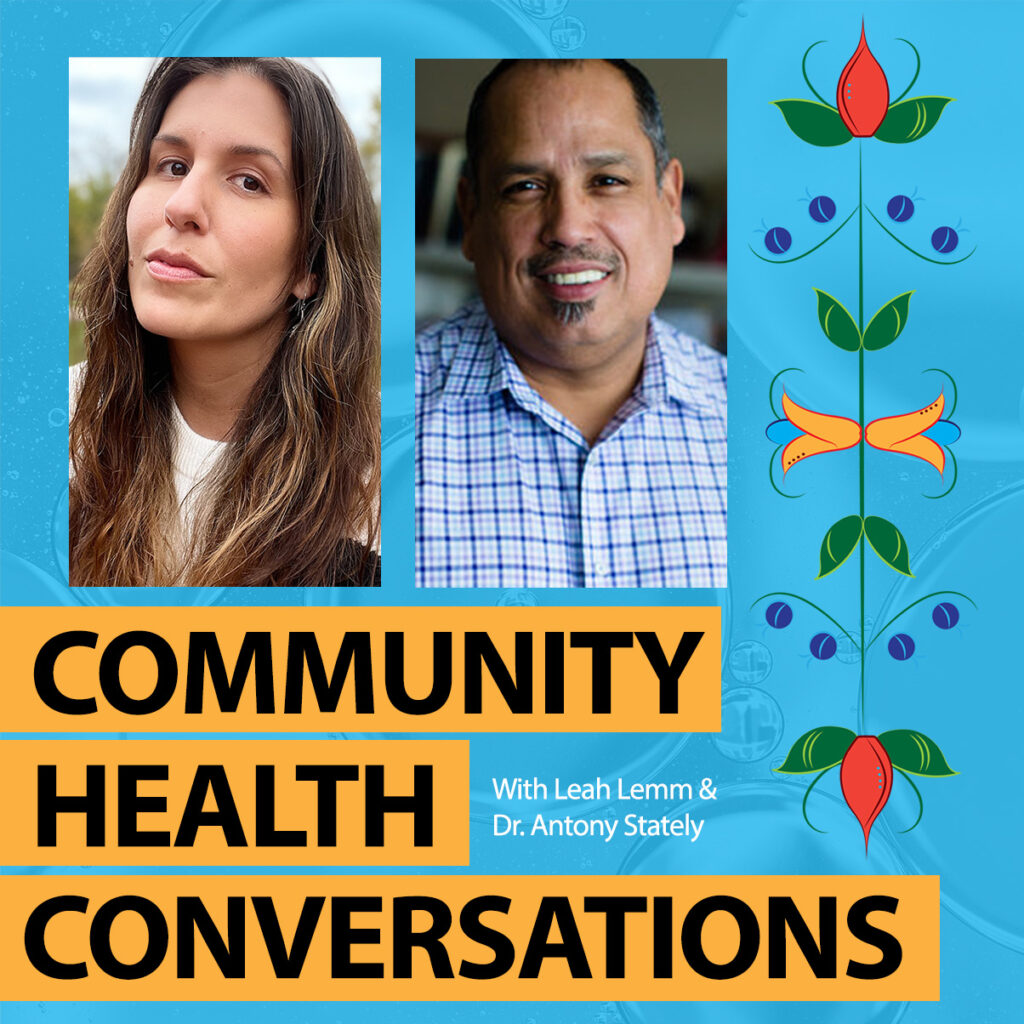
Welcome back to Community Health Conversations! Hosts Leah Lemm (Mille Lacs Band of Ojibwe) and Dr. Antony Stately Ph.D. (Ojibwe/Oneida) lead insightful discussions about the ever-evolving landscape of healthcare in Indian Country. They discuss the valuable lessons learned during the COVID-19 pandemic and explore how Native communities are responding and adapting beyond COVID-19.
Today, we’re joined by Sasheen Goslin who turned her passion for her community into a career of keeping people safe. During the pandemic, Sasheen changed the tone in Duluth around COVID-19. When people didn’t believe in the virus, others were dying – mostly the underserved and those without access to healthcare. The American Indian Community Housing Organization (AICHO), where she led the initiative, took a different approach. They integrated their traditions and belief systems, how they show love, into the public health model and changed the conversation, making a huge difference in the community at large. Now, she continues her community health journey with her enrollment into the University of Minnesota-Duluth’s Masters of Tribal Administration and Governance program.
Dr. Stately would also like to remind listeners that they may believe they have a regular cold or allergies, but they can utilize the resources available, such as the free testing kits, to be sure you don’t have COVID-19. And, be proactive by getting the recently released vaccine. Minnesota residents who have symptoms or have COVID-19 can qualify to receive treatment at co-cost through the Test to Treat Program.
Resources:
Get your free at-home COVID-19 tests monthly at Say Yes!
Renew your insurance at the Minnesota Department of Health’s website.
See qualifications and find information for the Test to Treat Program at 1-844-609-2415.
Community Health Conversations is made possible with the support of the Minnesota Department of Health. To find information about COVID vaccines and boosters, please visit MN.gov/COVID19.
- Culturally Informed Care: A Vision for the Future with Dr. Melissa Walls
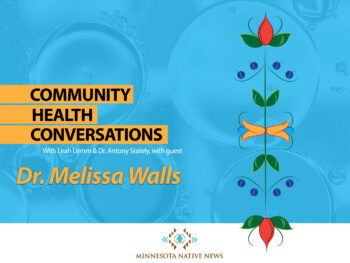 Join us for an insightful conversation with Dr. Melissa Walls, the Director of the Great Lakes hub for the Johns Hopkins Center for Indigenous Health. Dr. Walls shares her experiences leading the center through the challenges of the COVID-19 pandemic, highlighting the innovative approaches and resilient spirit that guided her team. We delve into the …
Join us for an insightful conversation with Dr. Melissa Walls, the Director of the Great Lakes hub for the Johns Hopkins Center for Indigenous Health. Dr. Walls shares her experiences leading the center through the challenges of the COVID-19 pandemic, highlighting the innovative approaches and resilient spirit that guided her team. We delve into the … - Reclaiming Indigenous Cuisine: A Conversation with Chef Sean Sherman
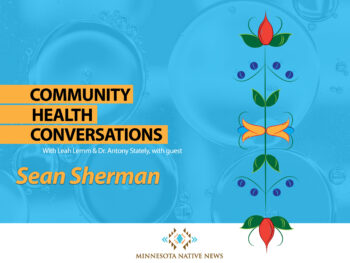 In today’s episode, we sit down with Chef Sean Sherman a visionary in the realm of Indigenous cuisine. Sean shares the challenges he has faced in reclaiming and preserving traditional and Indigenous ingredients, recipes, and culinary techniques. Diving into the rich history of Native diets, he compares them to modern western diets, shedding light on …
In today’s episode, we sit down with Chef Sean Sherman a visionary in the realm of Indigenous cuisine. Sean shares the challenges he has faced in reclaiming and preserving traditional and Indigenous ingredients, recipes, and culinary techniques. Diving into the rich history of Native diets, he compares them to modern western diets, shedding light on … - Future Forward: Transforming Education at Red Lake Nation College
 In this episode of Community Health Conversations, we delve into a captivating conversation with three distinguished individuals from the Red Lake Nation College. Our guests share insights into how the college is creating supportive and culturally relevant learning environments for students, intertwining cultural relevancy into programs and courses. We explore the unique challenges and opportunities …
In this episode of Community Health Conversations, we delve into a captivating conversation with three distinguished individuals from the Red Lake Nation College. Our guests share insights into how the college is creating supportive and culturally relevant learning environments for students, intertwining cultural relevancy into programs and courses. We explore the unique challenges and opportunities … - Mary LaGarde and Colette Lawrence: Unveiling Resurgence at The Grand Reopening of the Minneapolis American Indian Center
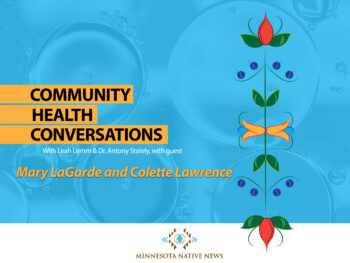 In this episode, we speak with Mary and Colette, two dynamic voices from the Minneapolis American Indian Center. As leaders in the community, they shed light on their roles in spearheading the center’s initiatives, particularly as they gear up for the grand re-opening celebrations starting May 1st. Mary and Colette delve into the pressing health …
In this episode, we speak with Mary and Colette, two dynamic voices from the Minneapolis American Indian Center. As leaders in the community, they shed light on their roles in spearheading the center’s initiatives, particularly as they gear up for the grand re-opening celebrations starting May 1st. Mary and Colette delve into the pressing health … - Boundaries, Community, and Health
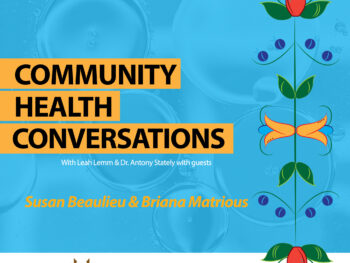 In this insightful episode, Susan and Briana open up about their personal journeys and experiences with boundary-setting. Through the lens of their respective podcast series Remembering Resilience, they delve into the profound significance of boundaries not only with oneself but within American Indian communities at large. They offer invaluable perspectives on cultural nuances and illuminate …
In this insightful episode, Susan and Briana open up about their personal journeys and experiences with boundary-setting. Through the lens of their respective podcast series Remembering Resilience, they delve into the profound significance of boundaries not only with oneself but within American Indian communities at large. They offer invaluable perspectives on cultural nuances and illuminate …

 Thomas Draskovic’s Gift of Artistry, Educating Native Youth and Activism
Thomas Draskovic’s Gift of Artistry, Educating Native Youth and Activism